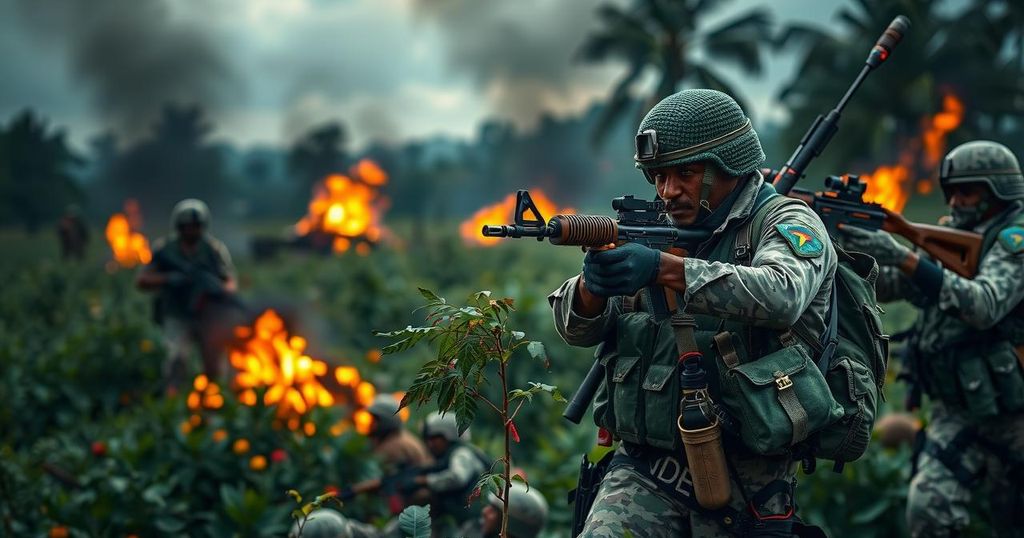The DRC government has accused the Rwanda-backed M23 rebel group of ethnic cleansing, claiming local residents in eastern territories are being forcibly expelled. Interior Minister Jacquemain Shabani’s comments followed M23’s establishment of local administrators. The ongoing conflict, marked by rampant violence and humanitarian displacement, has drawn international concerns regarding Rwanda’s involvement. A recent truce has reduced direct confrontations, yet violence persists, complicating the humanitarian situation.
The government of the Democratic Republic of the Congo (DRC) has formally accused the Rwanda-backed M23 rebel group of engaging in acts of ethnic cleansing in the eastern region of the country. Interior Minister Jacquemain Shabani raised alarms regarding the “massive arrival of foreign populations” in Rutshuru and Masisi territories, asserting that local residents have been violently expelled, constituting what he identified as ethnic cleansing. His remarks followed the M23’s recent appointment of administrators in the contested areas.
The stability of eastern Congo, a region rich in minerals, has been jeopardized by the escalating conflict involving numerous armed groups, with M23 increasingly asserting its influence. This continuing violence has rendered one of the most significant humanitarian emergencies globally, displacing over seven million individuals and complicating access to essential aid. M23 is primarily composed of ethnic Tutsis who dissociated from the Congolese military approximately a decade ago, and the group gained notoriety after capturing Goma, the largest city in eastern Congo, in 2012.
Allegations suggest that Rwanda may be implicated in war crimes and providing military support to M23, a charge Rwanda rejects. Nevertheless, in early 2023, Rwanda admitted to deploying troops and missile systems in eastern Congo to ensure its security, following concerns about Congolese military movements along the border. United Nations experts estimate that around 4,000 Rwandan soldiers are currently stationed in the DRC.
Although a ceasefire facilitated by the United States and Angola in July 2023 has led to a decrease in confrontations between Rwandan and Congolese forces, skirmishes between M23 and other militia factions continue. Notably, violence persisted even after the truce, resulting in tragedy such as the recent deaths of 16 villagers during clashes in August, underscoring the fragile state of peace in the region.
The conflict in eastern DRC is deeply rooted in historical tensions involving ethnic groups and the legacy of the Rwandan Genocide, which has had lasting repercussions on the region’s political landscape. The M23 rebel group emerged during a turbulent period when political alliances shifted, and territorial disputes became violent. The complex interplay of local grievances, international involvement, and the lucrative nature of mineral resources has entrenched an environment where armed groups, including M23, vie for control. The humanitarian crisis has reached staggering proportions, necessitating immediate attention to address the plight of millions affected by displacement and violence.
The allegations posed by the DRC government against the M23 rebel group highlight the critical urgency of addressing ethnic violence and the humanitarian crisis in the eastern region. The ongoing instability, compounded by external military involvement and local rivalries, demands international scrutiny and intervention. As the DRC grapples with these multifaceted challenges, the resilience of its population amid adversity remains a pivotal concern.
Original Source: morningstaronline.co.uk






